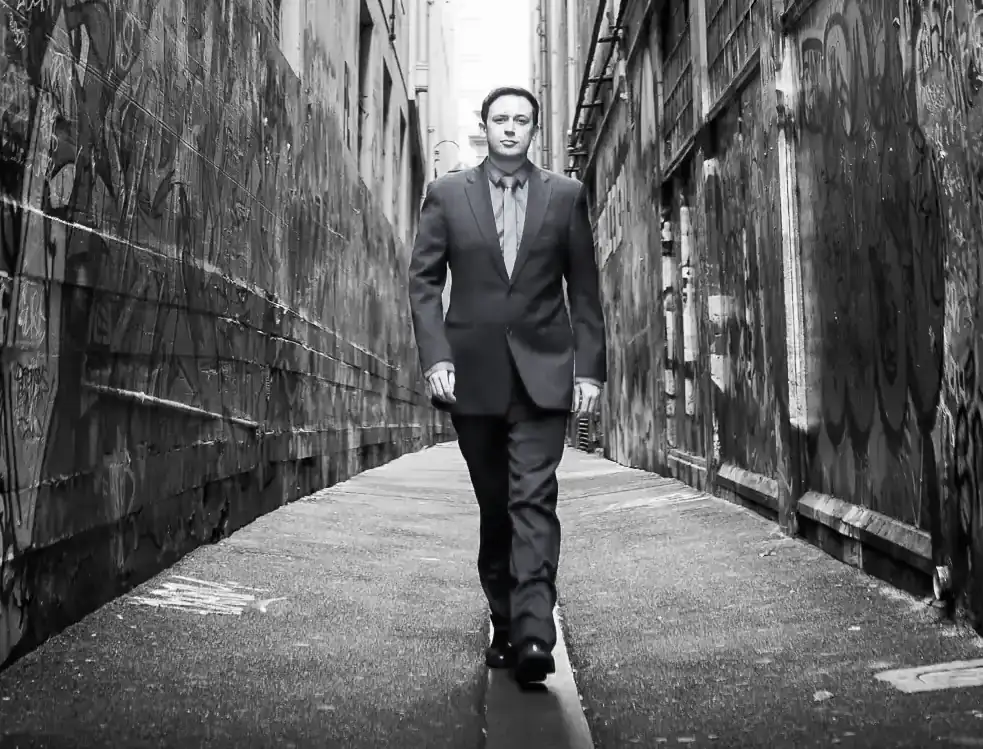Legal News
Articles written by Joseph Burke about topical legal news
- Sexual Assault

Sexual assault offences are offences that involve an application of force in sexual circumstances without consent. A number of different charges can be laid depending on the circumstances of the allegations made. In the least serious case one may be charged with sexual exposure if there is no allegation of assault. Where the allegations involve penetration, then the far more serious charge of rape applies.
These sexual assault offence offences are treated very seriously in Victoria. Charges for sexual assault offences derive from the Crimes Act 1958.
Here are some of the main sexual assault offences in Victoria
Rape This offence is incredibly serious and can involve substantial periods of incarceration for the most serious examples. It requires evidence of sexual penetration without consent. Defences apply where there is a dispute that the incident involving sexual penetration occurred, or where there is a dispute around whether the incident was consensual. Sexual Assault Previously referred to as indecent assault, this charge is generally made in circumstances where it has been alleged there has been some degree of sexual touching without consent but where there have been no allegations of sexual penetration. It is much less serious than rape, and may not attract a term of imprisonment in all cases. Directed Sexual Activity This offence is somewhat less serious than the others, but is quite psychological in nature. It involves performing a sexual act in circumstances where it is known that another person will be watching who will experiences fear or distress from seeing the activity. Sexual assault offences are treated very seriously in Victoria, and the penalties for these offences can include fines, Community Corrections Orders, and long terms of imprisonment. If you or someone you know is charged with a sexual assault related offence, they need legal advice immediately.

- How do I find good bail application lawyers?

Lawyers who make bail applications prepare and argue for the release of remanded accused while they await the outcome of their criminal matter. Such submissions are usually made by bail application lawyers before their clients are sentenced, but applications for appeal bail are also made.
Experience matters for bail application lawyers
Bail applications are complex to prepare and advocate for. It requires a lawyer to do an analysis to examine the strength of the remand application made by police, and weigh a variety of factors to determine if there is a realistic prospect of bail. This requires many years of experience for a lawyer to do it well.
Educational background
If you’re engaging with a lawyer, you may find their educational background is important. Some bail application lawyers received their qualifications from prestigious institutions such as the University of Melbourne, whilst others have not.
Manner and competence
As is their manner, and your own assessment of their competence. They should be calm, unflappable, willing to answer questions, and to give you all the information necessary to allow you to understand what you can do to help maximise the chances of bail for your loved one.
History of success
It is important to ask your lawyer if they have been successful with their cases. A good bail application lawyer will be a lawyer that has an established track record of success in published court cases. Have they won in the Court of Appeal? Have they got records which demonstrate they have good results?
- Intervention orders
There are two different types of intervention orders, and the legal test for obtaining them are different in each case. The first type of intervention order is a personal safety intervention order (PSIO), and the second type is a family violence intervention order (FVIO).
Although they are both intervention orders, they are regulated by different acts being the Personal Safety Intervention Order Act (2010) and the Family Violence Protection Act (2008).
The main difference between them is that a PSIO can be obtained only if a party has engaged in assault, harassment, property damage of making a threat, whereas a FVIO can be obtained if a party has committed family violence against an affected family member.
The mains issues with a FVIO is whether the party is an affected family member, and whether or not the conduct alleged is actually family violence.
Breaches of Intervention orders have serious repercussions and can affect freedom of movement. They must be treated seriously.
- How to book an appointment with our lawyers

Complex legal problems require lawyers that have the background, experience and skill necessary to achieve superior solutions. At Joseph Burke Law, we know that experience counts and can mean the difference between a great result and a catastrophe.
Who are Joseph Burke Law?

The principal, Joseph Burke, holds degrees in Science, Arts and Law from the University of Melbourne. He understands the legal structure underpinning Melbourne well, having a background as a parliamentary intern with a state government member of the legislative assembly prior to working with multiple law firms.
Since its establishment in 2013, Joseph Burke Law has been involved in a number of high profile criminal cases, and has represented clients in matters that have received significant media attention.
How do I book an appointment?
Finding time to book an appointment with a lawyer can be a difficult and time-consuming process. Often the need for a lawyer arises at the worst possible time one can imagine, and at Joseph Burke Law we understand this issue. To simplify the process, we provide two ways to book appointments with Joseph Burke Law. The first is by selecting a date using an online calendar. The second way to book an appointment is by calling 03 9008 6992.
What are your areas of practice?
We practice generally in the criminal law and civil law areas of law.
What can I expect at an initial appointment with a lawyer?
Your appointment will be with an experienced lawyer who will ask about the issues in your case and discuss the merits of your options and provide you with an estimate of costs to proceed with your matter. It is up to you to decide whether you wish to continue to engage the solicitor at the rate they estimate it will cost.
Costs
The policy at Joseph Burke Law is to not charge for initial appointments. Fees will only be charged for legal services once they have been agreed to in advance of providing the service.

- Legal Advice

Legal advice is guidance provided by a lawyer in relation to a legal matter. At an absolute minimum, it requires a lawyer explaining the legal options available to a client. In outlining these options, the lawyer will articulate the potential outcomes of these different options in order to help provide a recommendation on the option which makes the most sense for a client’s position.

How do I obtain legal advice?
The best way to get legal advice is to call us on 03 9008 6992. You will be able to speak to a lawyer experienced in criminal law, family law and other areas of law immediately about your legal issue in order to get the peace of mind that comes with this. If you would prefer to meet a lawyer in person for legal advice, you can book an appointment either by calling or booking an appointment online.
How do I get the most out of legal advice from a lawyer?
It helps if you can identify your legal issue such as whether it is criminal law, personal injury, family law or another area of law. During the consultation, be prepared to talk in detail about your legal issue as facts such as names, dates and events can be very important. It can be worthwhile to prepare some questions you may have about legal costs and the practical matters involved in obtaining legal representation.

- Penalty for drug possession

In Victoria, drug possession is considered a serious offence and carries a maximum penalty of 5 years imprisonment. The actual penalty may vary depending on the specific circumstances of the case.
What are the circumstances that affect sentencing of drug possession?

An offence that merely involves a small quantity of cannabis (listed in the schedule of the DPCS act 1981 as 50 grams), where the court is satisfied that there was no trafficking occurring, will be liable to a fine of 5 penalty units.
Furthermore, where the offence involves other drugs or more than the small quantity, and the court is satisfied on the balance of probabilities that the offence was not committed by the person for any purpose relating to trafficking the maximum penalty will be 30 penalty units and up to one year in jail.
In any other case, the maximum penalty is 400 penalty units and up to five years imprisonment.
Of course, the maximum penalty is rarely imposed, and sentencing involves consideration of mitigating factors and personal circumstances that often serve to reduce sentences considerably.

- Lawyers should not be informers!

Lawyers Informers legislation
It has been widely reported in The Age that new informant legislation risks re-run of the Nicola Gobbo Scandal. For the uninitiated, the Nicola Gobbo scandal was the media firestorm that erupted after it became clear that the arrests made into drug trafficking and murder connected to Carl Williams and associates were not the result of old fashioned detective work, but rather the emergence of an informer, a barrister who turned on her own clients and got them into trouble with the police all the while purporting to defend them in court.

Lawyers should not be informers
It goes without saying that this situation was an epic calamity of gigantic proportions. It should never have happened; it perverted the course of justice to the absolute maximum extent possible. But now that it has happened, it should never be allowed to happen again. Yet for reasons that escape rational contemplation, the Victorian Government appears to be introducing laws that will allow this sad tale to happen again, and again, and again.

Under the new laws, police will have discretion to register lawyers as human sources against their own clients. These lawyers turned informers will no doubt struggle to demonstrate this discretion to be the better part of valour.
- What is the difference between a barrister and a solicitor?

The difference between a barrister and a solicitor is subtle in that they are both types of lawyers who practice in the Australian legal system. There is a great deal of overlap in terms of their skill sets and responsibilities, but there are some very important differences in how they operate.

A solicitor is a lawyer who works directly with clients to provide legal advice, draft legal documents such as subpoenas and contracts, engage in legal research, deal with stakeholders and act in negotiations. They may also represent clients in court, but this would typically not involve trials.
A barrister differs by working as a specialist advocate who provides legal representation to clients in court. Barristers are used by solicitors to provide representation in higher courts like the County Court, the Supreme Court or the Court of Appeal. They are often involved in complex legal disputes, such as commercial or criminal trials, and their main role is to present arguments and evidence on behalf of their client in court.
Of course this is a very general description. There are some solicitors who appear as advocates in the Supreme Court, and there are some barristers who rarely appear in court at all and focus on providing legal research and expert opinions on complex areas of law.
